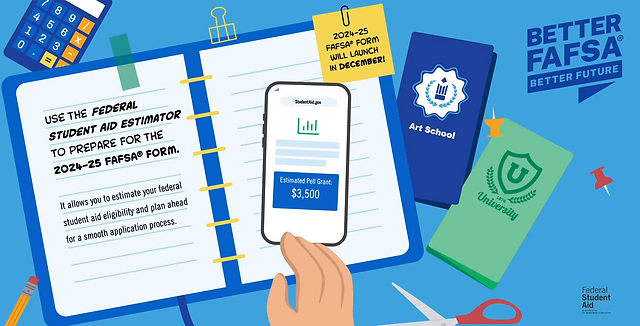Higher education is an invaluable investment in one’s future, but it can also be a significant financial burden. Fortunately, financial aid programs are available to help students and families cover the costs of college or graduate school. The most common type of financial aid is the Free Application for Federal Student Aid (FAFSA). The FAFSA is a single application that students use to apply for federal grants, loans, and work-study programs. The FAFSA has been simplified in recent years to make it easier for students and families to complete. However, it can still be confusing to know what documents you need to gather before you start the application. This article will provide you with a comprehensive list of the documents you will need to complete the FAFSA.
What Documents Do You Need?

The following documents are required to complete the FAFSA:
- Your Social Security number
- Your driver’s license number (if you have one)
- Your Alien Registration Number (if you are not a U.S. citizen)
- Your federal income tax returns, W-2s, and other records of money earned
- Records of untaxed income such as child support received, interest income, and veterans noneducation benefits
- Information on cash, savings and checking accounts, investments, and business and farm assets
- List of schools you are interested in attending
It is essential to have these documents ready before starting the FAFSA to ensure accuracy and avoid potential delays in the application process. Let us explore each document in more detail and understand why it is necessary for the FAFSA.
Social Security Number
Your Social Security number (SSN) is a unique nine-digit number issued by the Social Security Administration to track your earnings and monitor your Social Security benefits. It is crucial to have a valid SSN for several reasons, including:
- Verification of your identity: Your SSN is a unique identifier that helps the government verify your identity and avoid any fraudulent activities.
- Eligibility for federal aid programs: Most federal aid programs, including FAFSA, require applicants to have a valid SSN. It is used to match your application with your federal tax returns and other records.
- Automatic filling of data: When you enter your SSN on the FAFSA, the application automatically fills in personal information such as your name, address, and date of birth.
If you do not have a valid SSN, you can still apply for financial aid by completing the FAFSA using your Alien Registration Number (ARN). However, you must be eligible for federal student aid as a permanent resident or eligible non-citizen to use an ARN.
Driver’s License Number
Your driver’s license number may not seem like a crucial document for financial aid, but it serves a similar purpose as your SSN. It helps the government verify your identity and prevent any fraudulent activities. If you do not have a driver’s license, you can leave this section blank.
Alien Registration Number
As mentioned earlier, an ARN is an alternative to an SSN for non-U.S. citizens who are eligible for federal student aid. It is a seven-, eight-, or nine-digit number assigned by the Department of Homeland Security to track the immigration status of non-citizens living in the United States. It is vital to have a valid ARN to apply for federal student aid as an eligible non-citizen.
Federal Income Tax Returns and Other Records of Money Earned
The FAFSA requires applicants to provide information about their income and assets to determine their eligibility for need-based aid. This includes your federal income tax returns, W-2s, and any other records of money earned. These documents help calculate your Expected Family Contribution (EFC), which is the amount you and your family are expected to contribute towards your education. The lower your EFC, the higher your chances of receiving financial aid.
If you are a dependent student, you will need to provide information about your parents’ income and assets as well. This includes their federal tax returns, W-2s, and any other records of money earned. If your parents are separated or divorced, you will only need to provide information about the custodial parent (the one you lived with most during the past 12 months).
Records of Untaxed Income
In addition to your income, the FAFSA also considers any untaxed income you or your parents may have received. This includes child support, interest income, and veterans noneducation benefits. These records are used to calculate your adjusted gross income (AGI) and determine your eligibility for need-based aid. Some common sources of untaxed income include:
- Child support received from a non-custodial parent
- Interest earned on savings accounts
- Veteran’s disability benefits
- Worker’s compensation
- Child support paid by a parent living in a different household
It is essential to report all untaxed income accurately on the FAFSA to avoid any discrepancies between your application and your financial records.
Information on Cash, Savings and Checking Accounts, Investments, and Business and Farm Assets
Aside from income and untaxed income, the FAFSA also asks for information about your assets. This includes cash, savings and checking accounts, investments, and business and farm assets. The value of these assets is used to determine your financial need and eligibility for need-based aid. It is crucial to accurately report all assets on the FAFSA, including those held outside of the United States.
List of Schools You Are Interested in Attending
Finally, the FAFSA requires applicants to list the schools they are interested in attending. It is essential to include every school, even if you are unsure whether you will apply or be accepted. This is because some schools use this information to determine how much financial aid to offer you. You can list up to ten schools on your FAFSA, and if you need to add more later, you can make changes to your application.
Tips for Completing the FAFSA

Now that you know what documents you need to complete the FAFSA let us look at some tips that can help you in the application process.
Start Early
The FAFSA opens on October 1st of each year for the upcoming academic year. It is best to start the application as soon as possible to avoid any last-minute stress and potential delays. Some federal student aid programs, such as the Federal Pell Grant, have limited funds, so it is crucial to apply early to increase your chances of receiving aid.
Use the IRS Data Retrieval Tool
The IRS Data Retrieval Tool (DRT) is an online tool that allows you to transfer your tax information directly from the IRS to your FAFSA. This saves time and ensures accuracy in reporting your income and tax information. The DRT is available for most applicants who have already filed their taxes for the previous year. If you are eligible to use the DRT, it will be an option when you get to the financial information section of the FAFSA.
Complete the FAFSA Online
Completing the FAFSA online is faster and easier than filling out a paper form. It also offers built-in checks to ensure that all required fields are completed before submitting your application. You can save your progress and return to it later if needed. Furthermore, the online FAFSA allows for faster processing, and you will receive your Student Aid Report (SAR) quicker than with a paper application.
Double Check Your Information
Before submitting your FAFSA, make sure to double-check all information for accuracy. Any mistakes or discrepancies could result in a delay in processing your application or even denial of financial aid. Keep all supporting documents handy while completing the FAFSA, so you can refer to them if needed.
Apply Every Year
Financial aid is not a one-time deal. You must reapply for it every year by submitting a new FAFSA. This is because your financial circumstances may change, and your eligibility for aid may also change. It is crucial to apply early each year to ensure that you receive financial aid for the upcoming academic year.
Conclusion
Applying for financial aid can be a daunting process, but it is an essential step in making higher education accessible to everyone. The FAFSA has been simplified in recent years to make it easier for students and families to complete. However, gathering the necessary documents before starting the application is crucial for a smooth and accurate process. By following the tips mentioned in this article, you can ensure that you have all the required documents ready and complete the FAFSA successfully. Do not let the financial burden hold you back from pursuing your dreams; take advantage of the various financial aid programs available and invest in your future today.
wfriv.xyz